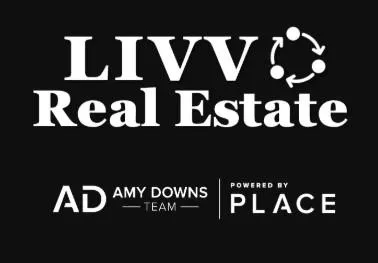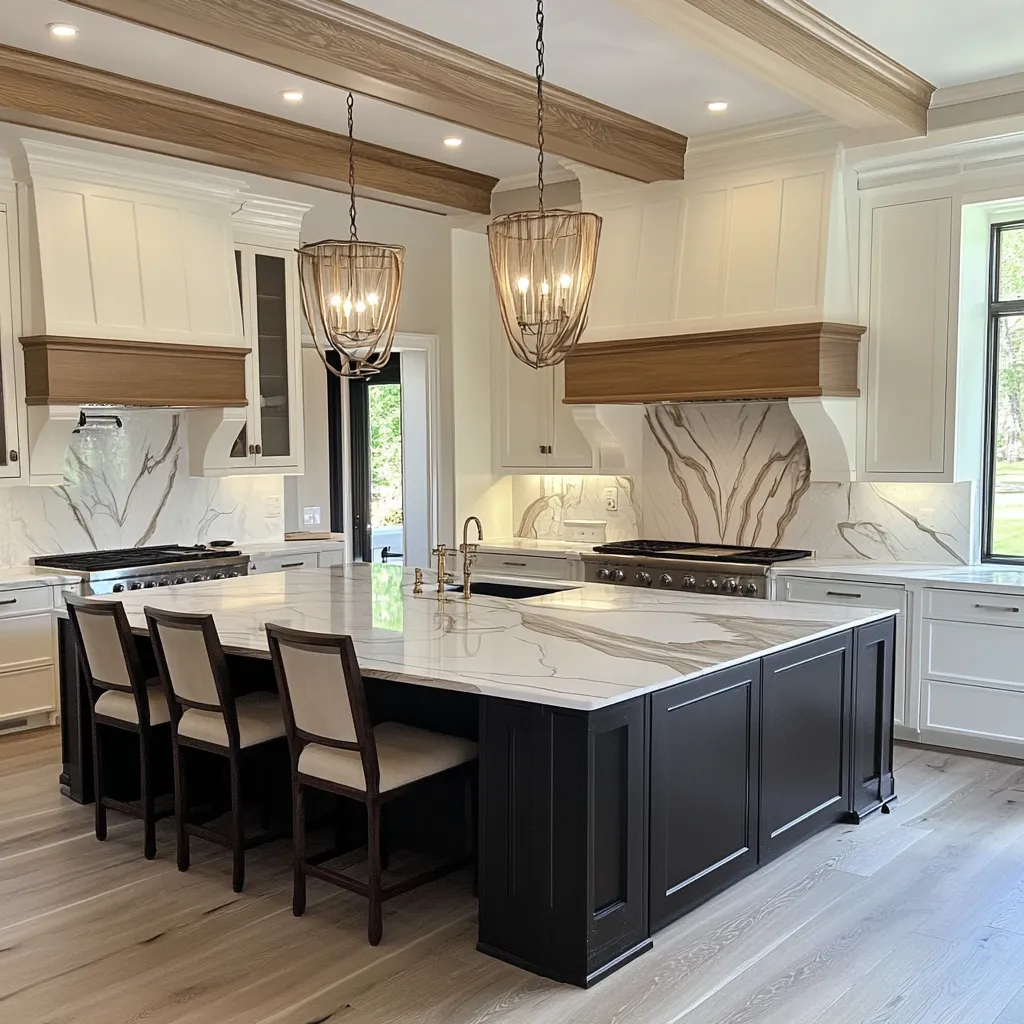

About Dallas Home Values
Myth #1: Zestimate® is an Appraisal
You're not a data point or just a number on a spreadsheet. Zillow's Zestimate® is generated by a computer algorithm that’s never stepped foot in your home — or your neighborhood. And in Dallas, that matters more than you think.
Automated estimates like the Zestimate® are like robots — they can’t see your upgrades, feel your home’s true condition, or recognize your street’s charm. They don’t know your backyard faces a greenbelt… or that you live on a busy road. They simply can’t feel the heartbeat of Dallas real estate, and yet, many sellers rely on it to price their most valuable asset.
That one mistake could cost you thousands.
Zillow® and Zestimate® are registered trademarks of Zillow, Inc. This site is not affiliated with or endorsed by Zillow, Inc.
Myth #2: Zillow® Has My Best Interest in Mind
Zillow® Isn’t What You Think It Is…
Many people assume Zillow® is a trusted real estate authority. But the truth? It’s a marketing platform — designed to generate advertising revenue by selling your information to agents, brokers, and other third parties. They don’t represent you. They don’t offer licensed advice. I’ve tested this myself.
As a consumer, I went to Zillow® to request info about a single property. I expected one helpful response — maybe a call or email. Instead, my phone was blown up by multiple agents and mortgage brokers. Not one — several. If you’ve ever wondered why you're suddenly swamped with sales calls… now you know.
Zillow’s® goal isn’t to help you sell smart or buy confidently, It’s to collect your data and sell it.
Zillow® and Zestimate® are registered trademarks of Zillow, Inc. This site is not affiliated with or endorsed by Zillow, Inc.

Myth #3 You Do not Need a Real Estate Agent Because Zillow Tells You the Value
How Zillow® Zestimates® Determine Home Value
Zillow® does its best — but it’s still just an automated system. It can’t walk through your home, see the view from your backyard, or notice the upgrades you’ve made over the years. It can’t feel the pulse of your neighborhood or understand what buyers are currently looking for in Dallas' ever-changing real estate market.
Zillow’s Zestimate® is based on a proprietary algorithm. It pulls data from public records, past sales, and user-submitted information. It likely factors in your home’s previous sale price, the sales history of nearby properties, and data from the Dallas County Tax Assessor’s Office — including the assessed value of your home.
But here’s the truth:
📉 These are just numbers. They can’t account for real-world variables like condition, curb appeal, location nuances, market timing, or your motivation — all of which can have a major impact on what your home is truly worth.
Zillow® and Zestimate® are registered trademarks of Zillow, Inc. This site is not affiliated with or endorsed by Zillow, Inc.


Myth #4: A Low Zestimate® Means Your Home is Worth Less
Zillow's® Misinformation
Before You Trust the Zestimate® — Read This
If you’re like most Dallas homeowners, you’ve probably visited Zillow® or Redfin® or other computer generated algorithms to get a rough idea of what your home is worth. It’s quick. It’s easy. And the Zestimate® gives you a number — fast. But here’s the question: Is that number reliable enough to base one of the biggest financial decisions of your life on? Let’s take a closer look.
Zillow® itself admits that their accuracy in Dallas only falls within 20% of the actual sales price — 89.64% of the time. Read that again. That means a $1 million home could be off by as much as $200,000 — and still be considered "accurate." Does that sound like a number you want to bet your equity on?
⚠️ What You Might Not Realize
Zillow® is not in the business of appraising homes. They’re a tech company that sells ad space and leads to agents — not a professional valuation service. In fact, even Zillow® says this:
“The Zestimate® is not an appraisal. It should be used as a starting point… and supplemented with a professional appraisal or a Comparative Market Analysis (CMA) from a real estate agent.” They’re right — on that point. Even banks don’t rely on Zillow® when they need a trustworthy valuation. Instead, they call in a licensed agent or appraiser for what’s known as a Broker Price Opinion (BPO) or an appraisal. Why? Because they know the risks of guessing — and they’re not willing to take them.
🔍 So, What Should You Do?
You could trust a computer program that’s never walked through your home... That doesn’t see your upgrades, your view, or the street you live on… That doesn’t understand your timing, goals, or local competition…or you could trust a real person — a local expert who knows Dallas real estate intimately and is committed to helping you price your home strategically, accurately, and profitably.
Zillow® and Zestimate® are registered trademarks of Zillow, Inc. This site is not affiliated with or endorsed by Zillow, Inc.
Myth #5: Zestimates® Adjust Immediately to Market Changes
Algorythms Cannot Predict Trends Fast Enough

Here's the Truth
While Zillow's® algorithm is constantly updating, it can lag behind rapid market fluctuations. In fast-moving markets, or during sudden shifts in interest rates or supply/demand, the Zestimate® may not reflect real-time conditions accurately. A professional Brokerage/Realtor has the ability to look forward at absorption rates and month's of supply to see upcoming shifts in the market and help you price accurately to stay ahead of the shifts in trends.
Myth # 6 I Should Price High Leave Room for Negotation
We Have A Saying in the Industry: Price High-Get Low, Price Right- Get Mo!
The Hidden Trap of Overpricing Your Dallas Home.
Even I, as a real estate professional, understand the urge to aim high when pricing my own property. After all, your home is likely your biggest investment, and you don't want to leave a single dollar behind. But here's the uncomfortable truth: overpricing is a common mistake that can actually cost you money. It's counterintuitive, but it's a reality I see play out constantly in the Dallas market.
The Overpricing Ripple Effect: From Zero Showings to Vulture Offers
When you list your home too high, you immediately reduce buyer interest and showings! Think of it this way: if comparable homes are are priced at the correct price, and yours is overpriced with no significant added value, buyers will simply skip over it. Fewer showings mean fewer opportunities for offers, and your property sits on the market. Once your home has been listed for an extended period, it becomes "stale" in the eyes of buyers and their agents. When you inevitably drop the price to a more realistic level, you're no longer attracting top-dollar offers. Instead, you become a target for cash investors and "vultures" looking for a bargain. I've witnessed this first hand as a Licensed Appraiser and Licensed Broker in Texas.
The "Flipped" Home Fiasco: A Case Study in Overpricing
Consider the numerous flipped properties I appraise in Dallas. These homes are often listed at 10% or more above their actual market value. While you might think this leaves room for negotiation, it rarely works out that way. I frequently find that the final contract sales price is lower than my appraised opinion of value. Why? Because the property was stigmatized. It went through the cycle of being overpriced, accumulating more days on the market than average, and ultimately attracting only "bottom feeders." The equity that seemingly sat on the table was, in reality, lost.
The average days on market for flipped houses in Dallas is higher than general average days on the market in Dallas. This prolonged market time directly correlates with price reductions and a lower net sale for the seller. Ready to avoid the overpricing trap and maximize your home's true value in today's Dallas market?
The Appraisal Gap: Who Pays the Difference?
In a competitive market, if your home is priced responsibly and multiple buyers are vying for it, they might be willing to cover the difference if the appraisal falls short. They'll pay the appraisal gap out of pocket to secure their dream home. But if your price was inflated from the start, and the appraisal comes in lower, the tables turn. In most scenarios, you, the seller, will have to eat that difference. That means reducing your price to match the appraisal, or the deal falls apart. Suddenly, that seemingly high offer evaporates, and you're back to square one, possibly losing out on a better outcome.
This isn't just theory; it's a harsh reality I've seen play out. That's why accurate, responsible pricing for your Dallas home isn't just smart – it's absolutely vital to protect your equity and avoid losing thousands in the end.
Feeling the pressure? Don't risk leaving money on the table or getting caught in an appraisal gap. Understanding the nuances of Dallas's market is complex, but it's essential for a smooth, profitable sale. Ready to price your Dallas home with surgical precision and avoid these costly pitfalls?
Myth #7 The Renovation Myth: Why Your Home Upgrades Might Not Boost Your Sale Price as Much as You Think
You've poured your heart (and wallet) into making your house a home, adding those dream updates, a sparkling new pool, or a stunning kitchen reno. It makes sense, right? You want to enjoy your space! But here's a crucial, often misunderstood truth about real estate: Those amazing upgrades are often for your enjoyment, not necessarily for a massive price boost when you sell.
The Hard Truth: Cost vs. Contributory Value
It's a common misconception that every dollar you spend on a renovation adds a dollar (or more!) to your home's sale price. The reality is that the contributory value
of an update, amenity, or renovation is frequently
far less than its actual cost.
Think of it this way: there are many sellers who "overimprove" their properties for the specific neighborhood they're in. This is a concept appraisers call
superadequacy. Essentially, you've added features that exceed the typical expectations or value range for comparable homes in your area. The rule to follow is update or upgrade for your enjoyment only, not to sell.

Myth #8 - The Maintenance Myth: Why Your Recent Maintenance Projects Aren't Boosting Your Price (But Will Sell Your Home Faster)
Think about it: would you pay extra for a used car with fresh oil? No. Buyers expect essential home systems to be functional and maintained. A working HVAC, a hail-free roof, fresh paint, and clean carpets aren't "upgrades"—they're
basic expectations for a move-in ready home.
The True Payoff: Speed and Smoothness
You can't get more money for basic upkeep. However, neglecting it will cost you. The real value of your recent work? It helps you sell faster and avoid headaches.
Attract the Right Buyer: A well-maintained home appeals to buyers seeking a seamless move, not a project.
Stand Out: Your cared-for home shines, leading to more showings and better offers.
Smooth Sailing: Proactive fixes mean fewer surprises after inspection, leading to a faster, stress-free closing.
Your goal isn't to get more for maintenance; it's to present a home that feels turn-key, appreciated by buyers who will then act quickly and with fewer demands.
Myth #9:
I need to wait for the "peak season" to sell.

Reality: While spring and summer are often busy, a motivated buyer exists in every season. Selling in an "off-season" can mean less competition from other sellers, and buyers who are looking then are often more serious and ready to make a deal. And can get your more due to lack of inventory during those times.
The Perfect Time to Sell "The 'perfect season' to sell is when you're ready. Smart sellers leverage every market cycle, knowing that serious buyers are always out there, regardless of the calendar."

Myth # 10
Don't Fall for the Square Footage Trap: Why Your Neighbor's Sale Price Isn't Your Price
Don't just eyeball your neighbor's sale to price your Dallas home. Here's a critical truth: larger houses often get less per square foot, while smaller ones get more.
This is the law of diminishing returns in real estate.
For instance, a 2,200 sq ft home selling at $225/sq ft ($495,000) doesn't mean your 3,200 sq ft house will sell for $720,000. That's a common mistake.
Price Smarter: How to Compare
To price accurately: Stick to within 15% of your square footage: Compare homes only slightly larger or smaller than yours. Mix it up: Look at a few comparables both above and below your size. Condition matters: All comparisons must be in similar condition.
This precise approach ensures you're pricing based on real market value, not just rough estimates.
Ready to find your Dallas home's true value with expert analysis?
